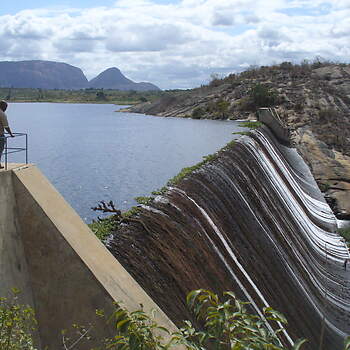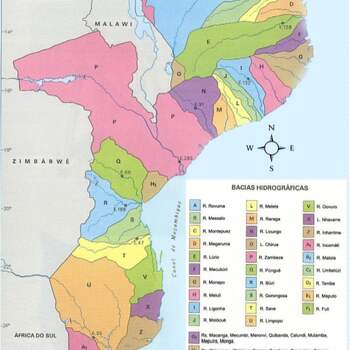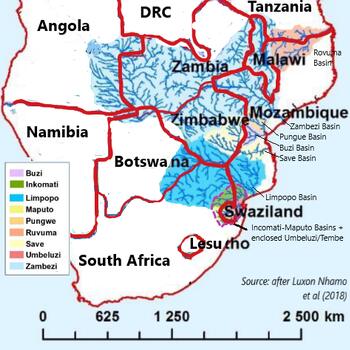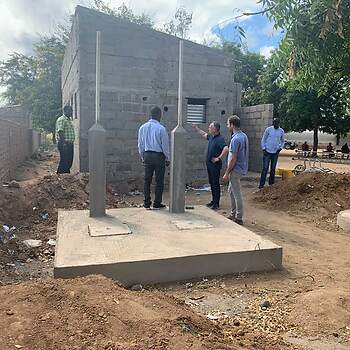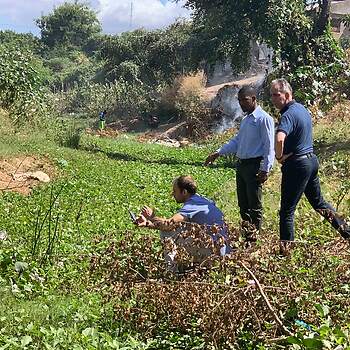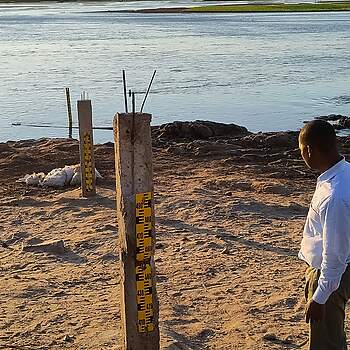Introduction
Since independence, the Netherlands has been a dedicated supporter of Water Resource Management, capacity building and institutional reforms. Other early supporters were UNDP and UNESCO, while the World Bank stepped in much later. The direct connections of the Water Resource Department of DNA and Dutch expats led to the idea to install Water Basin Authorities as autonomous administrations. The Water Authorities in the Netherlands go back to the Middle Ages and are democratic institutions. The creation of Water Administrations would make water management more operational, would enable participation by stakeholders and would allow for management decisions outside of the direct political influence. They would also allow for a better integration of different water functions beyond the Water Directorate, such as for hydropower, irrigation, and navigation.
Water Act 1991
The Water Act of Mozambique of 1991 was focused on this desired institutional setting and cross sectoral aspects of water management. It also defined the priorities in water use. The Water Act was quickly followed by a decree to create Regional Water Administrations (ARAs). The abbreviation ARA stands for Administração Regional de Água. The Water Act is considered to be advanced for the African continent, although plans and implementation are two different things (Alba et al 2016). It was decided to follow a gradual path of institutionalisation and capacity development.
A first start was made with a Water Administration for the southern part of Mozambique, called ARA Sul, which received support from the Netherlands after the first years (starting in 1996). The Netherlands gave also support to the preparation of the four other ARAs in the so-called Water Resources Assessment and Planning project (WRAP), which started in 1997.
ASAS and other ARA support after 2000
After 2000, this support stopped when the Sector Wide Budget Support (ASAS) was introduced. It was expected that the capacity building would continue with finance from ASAS, but this hardly happened, initially. That is one of the reasons why ASAS was redefined and why several other support mechanisms were put in place from 2005 onwards. ARA Zambeze got project funding from 2012 – 2019. And the ASAS-V project (2011 – 2017) had a specific component for ARA support.
The Dutch IWRM support to Mozambique was evaluated in 2017 (IOB/Turner 2017), which report is one of the case studies of a IWRM sector evaluation (IOB 2017 and the summary IOB 2017).
The Netherlands funded IWRM programme (2019-2024) was meant to provide institutional support to the national entities on water, dealing with IWRM, and the Central and Northern ARAs. It was also including concrete implementation projects, aiming at water security (droughts, floods) and water safety (quality, availability) and improved water monitoring.
Also, academic cooperation provided support to the development of the ARAs, such as through UNESCO-IHE (now IHE).
Twinning with ARAs
In parallel to ASAS, there was the development of a twinning model with Dutch Water Authorities. Two twinnings were presented as contribution to the Millennium Agreements, signed at the Isle of Schokland in 2007. The first one was Wetterskip Fryslan, which provided support to ARA Sul, including exchange visits. Water Authority De Dommel (Brabant) started an interesting twinning with ARA Zambeze. Despite of the big differences in staff per catchment surface area, the cooperation was evaluated as fruitful.
Blue Deal
Since 2019, the twinnings by Dutch water authorities are transformed into the Blue Deal programme [LINK], funded by the Dutch Government. Mozambique has the largest budget in this programme. The programmatic approach can create a lot of harmonisations and is having a much wider impact of capacity building activities than working with individual organisations. Harmonisation is also reached with the larger embassy funded national IWRM programme (see DWA Archive).
International
As the country has several main rivers that originate in or share a catchment with neighbouring countries, the international dimension of Water Resource Management is particularly important for Mozambique. Agreements have been made for all these rivers basins. The Netherlands have been supportive for the cooperation between Mozambique, South Africa and Swaziland for the Incomati and Maputo River Basins in a project called PRIMA (Progressive Realisation of the Incomati Maputo Agreement; 2006-2015, 2019-2023, 2024- ). From 2006 to 2015 DNA was the lead contract partner for the Netherlands Embassy. Now, ARA Sul is the Mozambican partner in the agreement. See further the page on Transboundary cooperation.
References
Alba, R. And Bolding, A. (2016). 'IWRM Avant la Lettre? Four Key Episodes in the Policy Articulation of IWRM in Downstream Mozambique'; in: Water Alternatives, 9 (3): 549-568
Blue Deal (2018). Partnerschappen (2018-2030)
CDP (2007). Evaluation of sector approaches in the water sector. Country report Mozambique. Utrecht: CDP Utrecht and Delft: UNESCO-IHE (Woersem v., B., P.J. Zijlstra P.J. and Juizo D.)
GOM (1991) ‘Lei de Aguas; Lei No 16/91 de 3 de Agosto’; in: Boletim da República, Número I- 31, 2o suplemento, 3 de Agosto de 1991
GOM (1991). Criação das ARAs; in: Boletim da República, Número 272, Decreto No 26/91 de 14 de Novembro de 1991
GON (2015) National Water plan 2016-2021; pages 63-65 (joint publication of the Ministry of Infrastructure and the Environment and the Ministry of Economic Affairs
IOB (2017). Policy Review of Dutch aid policy for improved water management, 2006-2016; Mozambique country study (Turner S.); Evaluation Report No 418
IOB (2017). Tackling major water challenges; policy review of Dutch development aid policy for improved water management, 2006 – 2016; Evaluation Report No 418
IOB (2017). Nieuwsbrief Beleidsdoorlichting van de Nederlandse ontwikkelingssamenwerking voor verbeterd waterbeheer
Websites:
DNGRH: https://www.dngrh.gov.mz/
ARA Sul IP: https://www.ara-sul.gov.mz/
ARA Centro IP: https://aracentroip.gov.mz/
ARA Norte IP: https://aranorte.gov.mz/
FUSP: https://www.facebook.com/Frisianurbansanitationproject/
Blue Deal: https://dutchwaterauthorities.com/news/partnership/mozambique/
Boletim Hidrologico: https://www.dngrh.gov.mz/index.php/component/docman/boletins-de-bacias-hidrograficas?layout=table&Itemid=161
Version management: Original text written by D.Bouman, May 2024
